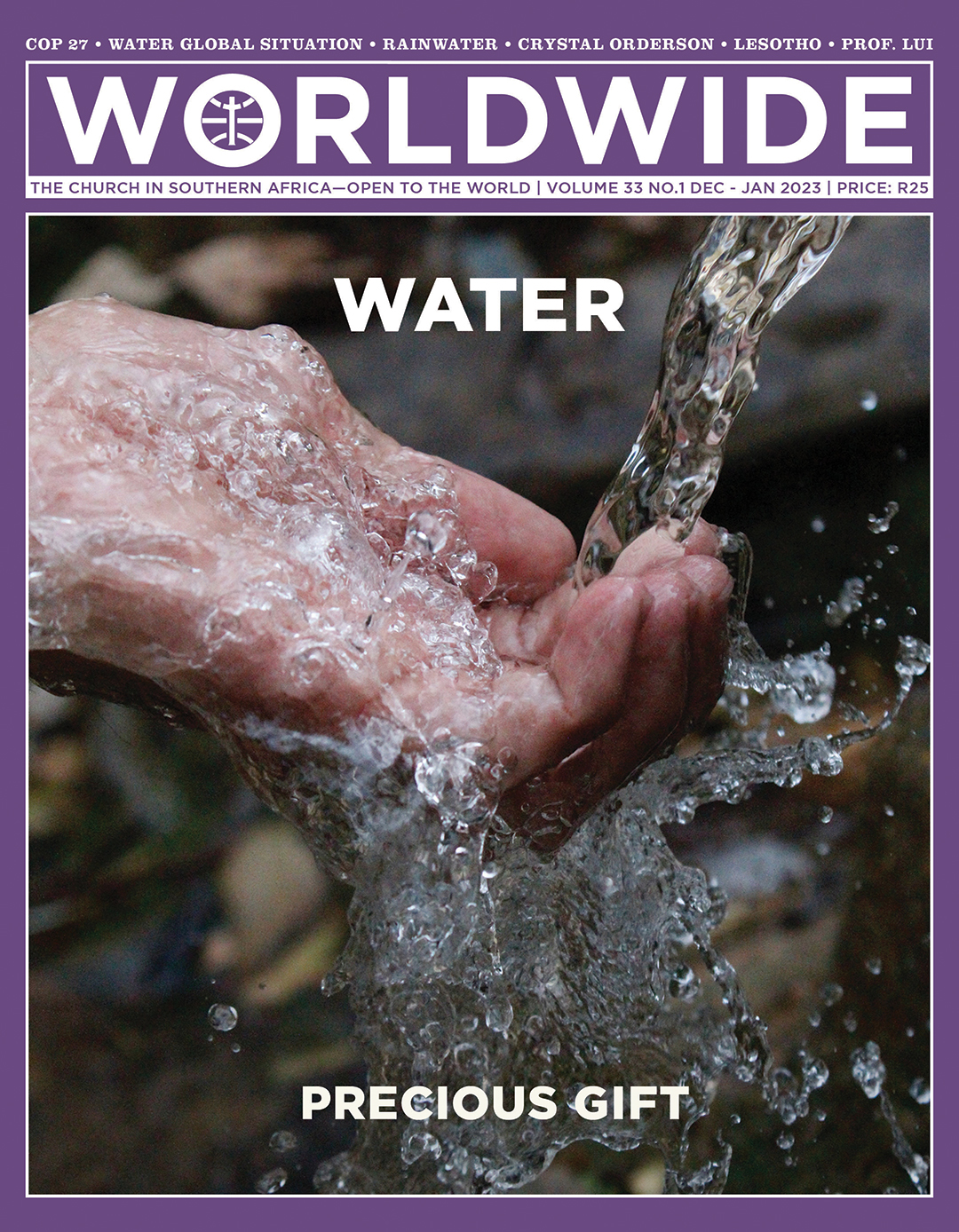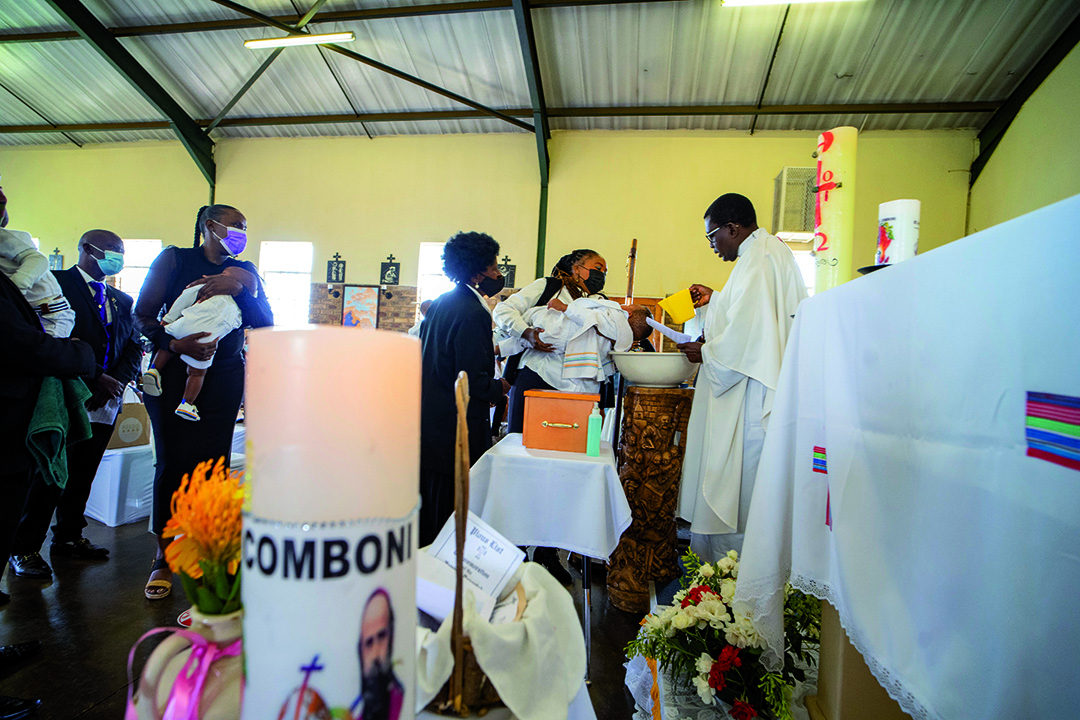FRONTIERS • MISSION IN ETHIOPIA
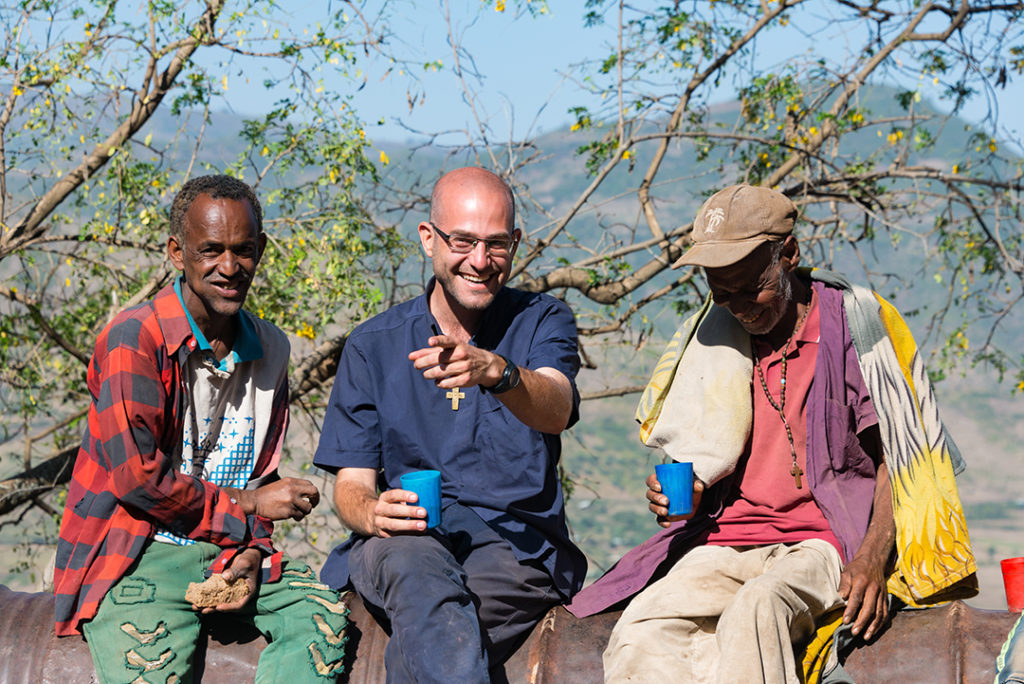
Evangelizing Through Sharing of Life
Fr Paul Schneider is an American-born Spanish diocesan priest. He left his home to become a missionary in Ethiopia. He narrates his experience among the Oromian people to whom he ministers and with whom he shares his life
BY
Fr Paul Schneider
| Lagarba, Ethiopia
PHOTOS BY JOSE MARTIN
TO BE HONEST, I never thought that the mission would be so exciting. Since we have finished the boreholes in the schools and the rains have started, my pace of work has slowed down in terms of construction and projects, but in terms of personal relations, these have intensified, with community members from many families in the area, both Christians and Muslims.
I’ve been on this mission for five years. I’ve learnt the Amharic language, and I already speak some Oromo. I enjoy being with the people; we laugh a lot and we always talk about doing things together. I often feel that no other time in my life would have been better if God had not brought me to this place.
Planting trees
Together with the voluntary co-operation of the people, we are planting a lot of trees, it’s the right time for it; now it’s raining and the ground is not drying out. This week, we have planted about five thousand plants, mostly conifers and Grevilleas, along the side of our new road, so that as the roots grow, the slopes will be strengthened and there will be no landslides. We have also planted many fruit trees at the mission. We already had almost a hundred coffee plants growing, and last week we added guava, mango, papaya, banana, custard apple and other trees. They will take years to bear fruit, and those that don’t thrive, we will replace.
As I drive back and forth with the pick-up, I am getting to know the public tree nurseries of the area, and meeting more people from other places. As we have constructed the road and other projects, the authorities are very grateful, and they give us all the seedlings we need for free. We also encourage the villagers to plant trees on the edges of their fields and on land that has been left fallow by erosion or continuous cultivation. Nothing can ensure that the rain may be as it used to be, but the shade from the trees certainly will reduce soil temperature, prevent moisture from evaporating, and when their leaves fall, they will mulch (in the case of deciduous trees) and make the soil more fertile. Moreover, where there is a grove of trees, crops, vegetables and fruit trees are better protected from hail and strong winds. A tree can be planted in two minutes, and once it takes root, it hardly needs any care.
Faith-growing experience
Sometimes, I think back to why I came here, and evaluate all these years in the mission. Although hardships are our daily bread, if the missionary experience during these years had not been an opportunity to grow in faith and joy, I would have returned long ago to my beloved diocese of Getafe, in Spain. Faith gives you many gifts, it opens doors, hearts and people. The mission can only be lived from our faith. I didn’t come here to build houses, bridges, roads and boreholes, or to plant trees. I do all that but I don’t even consider myself the author of these works, much less boast about them, even if I enjoy working and I am passionate about them. I came here for my salvation, to be more of His own and to share His love. That is evangelisation. Evangelisation is the most necessary thing for the world, more than all the social causes. Everything else comes afterwards, “Seek first the kingdom of God and His righteousness, and all else will be given to you besides” (Mt 6: 33). Evangelisation has its basis in worship.
Evangelisation is the most necessary thing
for the world
My presence here is to live among the poor, to be their father and their shepherd, and to contribute whatever I can to the betterment of their lives, spiritually, materially, in everything. When you live with the people, the poor share what they have, and they also ask of you. They ask you often, sometimes they overwhelm you; sometimes you give and sometimes you refuse, but in either case, you know that Christ asks you to renew your generosity daily, and the mission demands that you overcome your selfishness, make sacrifices and live with austerity.
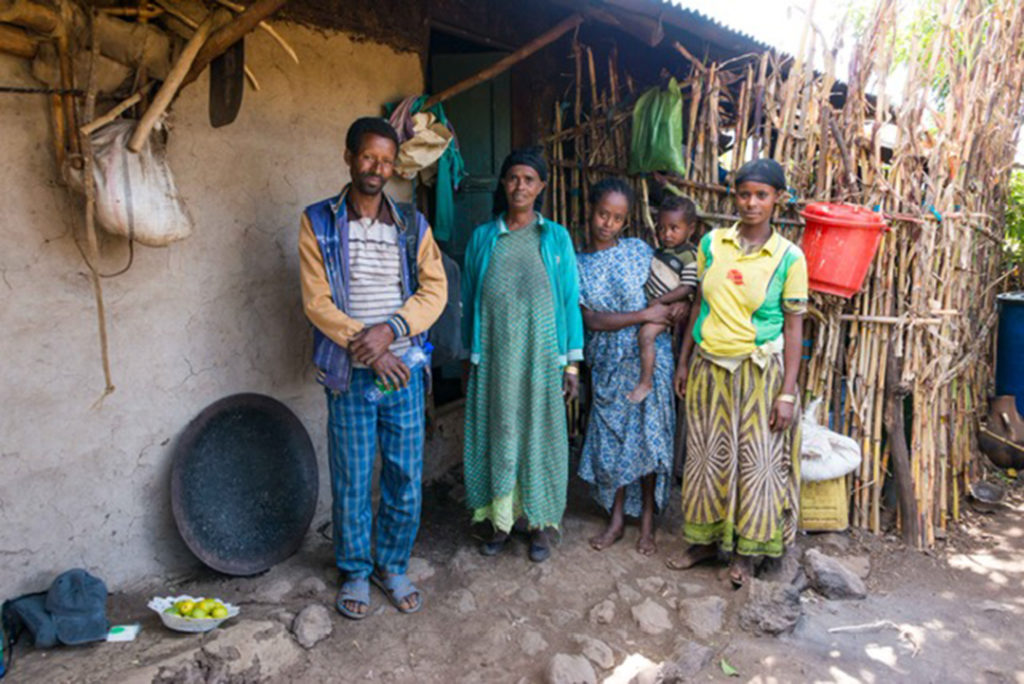
Food sobriety
Austerity, for example, in food. If I have some special food that I like, I prefer to share it with those who live with me and, if not, it is better I deprive myself of it and not buy it, and just eat what people eat, even if sometimes I miss some things such as chocolate or meat. Here you don’t eat à la carte, or special things bought in the city, such as cold cuts, tinned tuna, cold meats, powdered milk or chocolate (all unaffordable for people in the countryside), unless, as I say, you invite everyone you are with. I no longer have any excuse for not eating what they eat, as my stomach is more than adapted, although I don’t always love it. I have got used to always eating vegetables and injera (bread made of fermented teff flour), and not eating meat, dairy products or eggs except occasionally, when there is a party or when I go to the city, which can be every month or every two months.
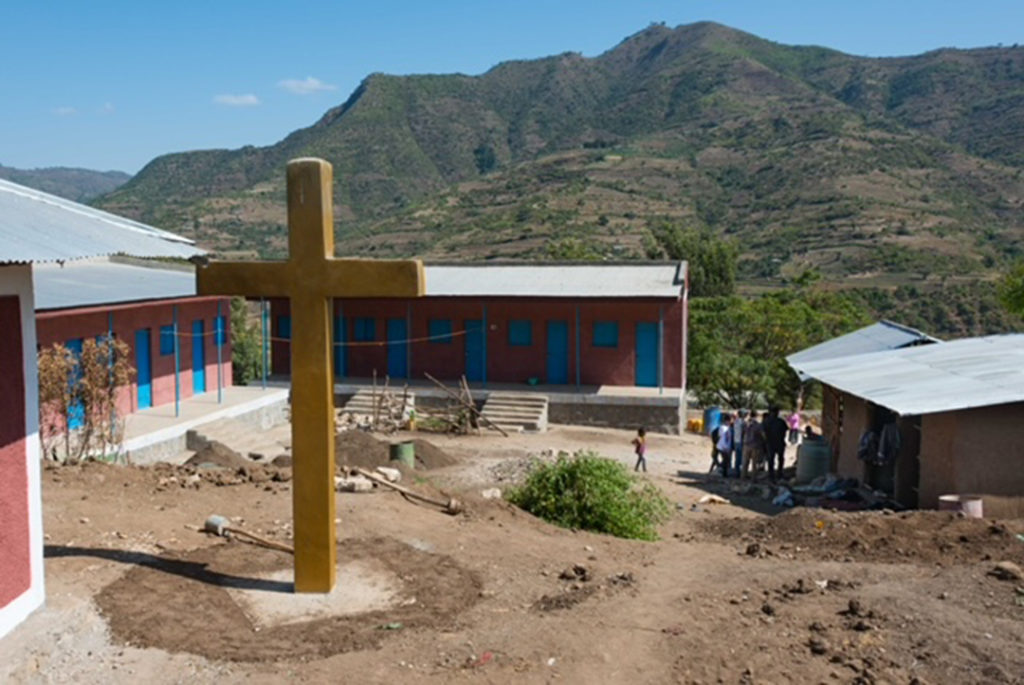
This is how most families live in Lagarba, they can’t afford beyond that. As far as possible, and without prejudice to health, whoever comes here for a long time should eat and drink what is here, what the people eat and drink. “Eat and drink what is set before you” (Lk 10: 8), is the advice of Jesus to his missionary disciples. No one starves in Lagarba, but many families do go a little hungry; they only eat once or twice a day, and the food is very simple and the portions are tight. There are rarely any leftovers. Everyone loves sugar and coffee. This is the land of coffee, but many families go for days and weeks without coffee or sugar due to a lack of income to buy it. However, when there is an important holiday, such as the Ethiopian New Year (Enkutatash, 11/12 September), or Easter or Christmas, every family eats meat, even if they have to indebt themselves to buy a few kilos, or spend the savings they have so that on that occasion they make sure that there is no shortage of coffee, sugar and biscuits for the children. Wealthier families also buy new clothes for their children, to wear on those two or three special days of the year, but many others cannot. The rural poor, even if they would never have voluntarily chosen poverty and being born here, have a special strength to live with continuous deprivation, and they also have the enthusiasm and innocence of those who are not satisfied or jaded, and you don’t see bitter people as you may find in the city. I share with you my experience, which has a lot to do with liberation, and which has been a gradual adaptation, not without renunciations, even in something as prosaic as food.
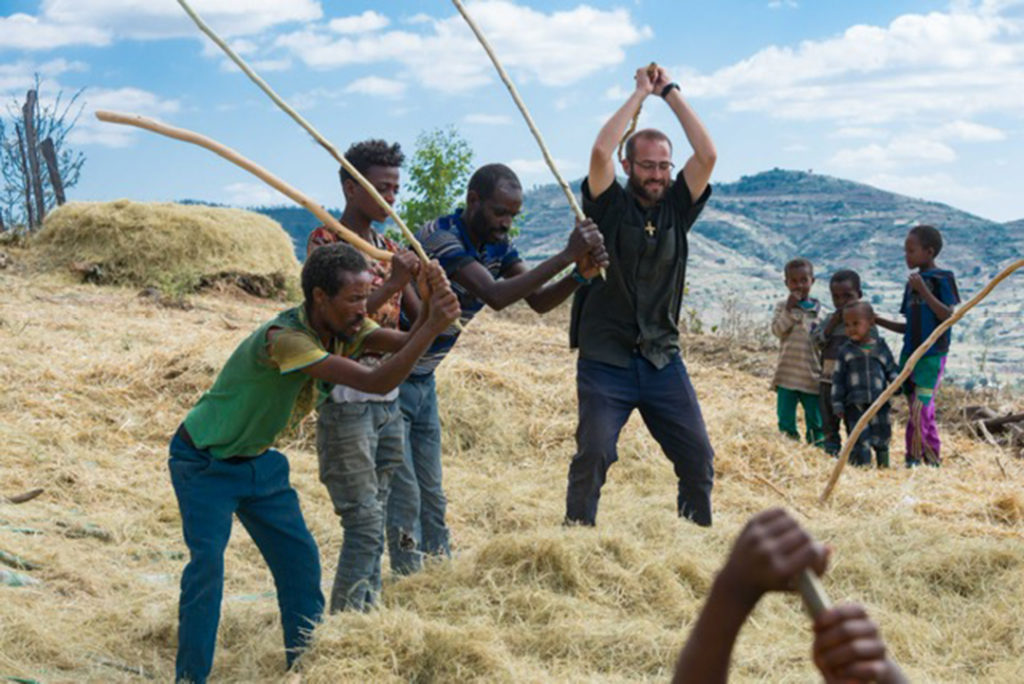
In Jesus’ footsteps
The Son of God worked with His hands and taught us that manual labour is a school of holiness. So did St Paul, the Fathers of the Desert, the Benedictines, and the laity throughout the centuries. I like to give a hand to the farmers in the fields; that is also part of evangelisation, to be with the people and to work with them, to know their fatigues and become one with them, to make them feel that I am also theirs. Working together, sharing food and praying together, this is the Church. There is time for everything, time to put on the cassock and time to take it off and roll up your sleeves, pick up the hoe, and get calluses and blisters on your hands, and get dirty with sweat and dust, and in everything, you can find the joy of the Lord.
I like to give a hand to the farmers in the fields; that is also part of evangelisation, to be with the people and
to work with them
I am content with this life, with its toils and privations. It is the dynamic of sacrifice that is repeated every day, like the Eucharist. You are consumed, and you know that the sacrifice has an eternal purpose, that God has prepared a reward and rest for you.

